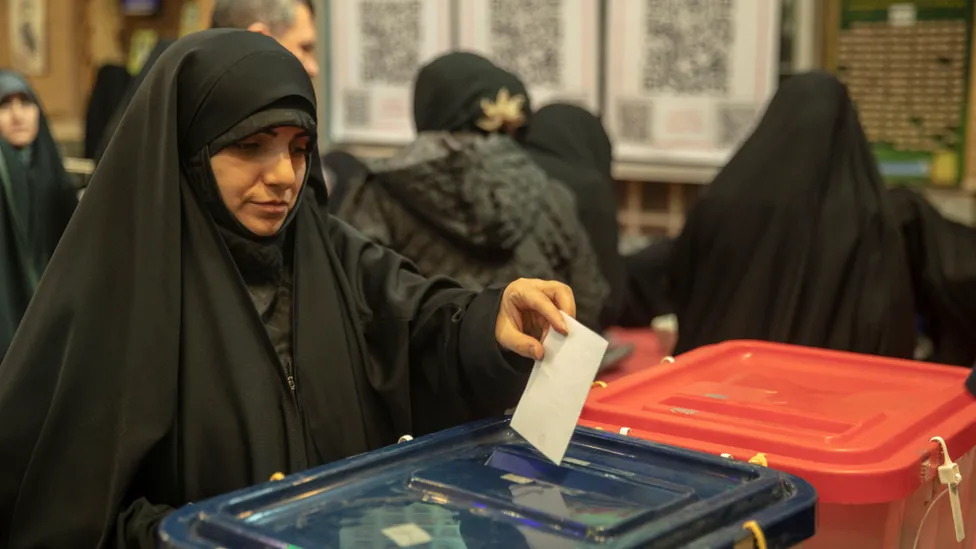Iran has started counting ballots for parliament and key
clerical body elections as unofficial reports suggest Friday's vote saw the
lowest turnout since the 1979 Islamic revolution.
The elections were the first since widespread protests
triggered by the September 2022 death in police custody of Mahsa Amini, 22, an
Iranian Kurd.
She was held for allegedly violating Iran's strict dress
code for women.
More than 61.2 million Iranians were eligible to vote.
Two separate polls took place on Friday: one to elect the
next members of parliament, and another to elect the Assembly of Experts.
The assembly selects and oversees Iran's most powerful
figure and commander-in-chief, the supreme leader, who makes decisions on
issues such as social freedoms and economic conditions.
A really simple guide to Iran's protests
Iran executions surged to 'spread fear' - report
Identifying those killed in Iran's protests
Iran has been badly hit by international sanctions, an
economic crisis, widespread hardship and violent unrest.
Despite Supreme leader Ayatollah Ali Khamenei's appeal for
people to cast their votes, many Iranians were split on whether or not to take
part.
Early polling on Friday suggested the election's turnout
could be at a new record low and is thought to be particularly low in the
capital, Tehran.
A state-linked polling agency projected a 41% turnout for
the parliamentary elections - which, if accurate, will be the lowest turnout in
the past 12 such votes.
With votes tallied manually, Iran's ballot takes time to
count. Some of the results have been announced. According to Iran's state news
agency, IRNA, most of the Assembly of Experts for major cities have been
counted.
This assembly is a group of 88 Islamic clerics who have the
responsibility to select the next supreme leader when the time comes -
Ayatollah Ali Khamenei is 84 and the new assembly will sit for eight years.
Around 50 of the 290 parliamentary seats so far have been
declared by some city councils. The final results are likely to be clear
tomorrow.
No official turnout figure has been announced. Analysts
suggested a low turnout would be a show of disenchantment with politics after
many of the country's officials called for voters to head to the polls.
The Supreme Leader, who cast his vote first, did so saying
"vote as soon as possible, the eyes of Iran's friends and ill wishers are
on the results".


